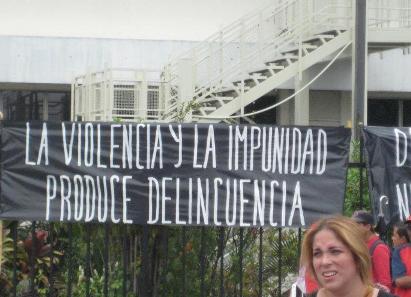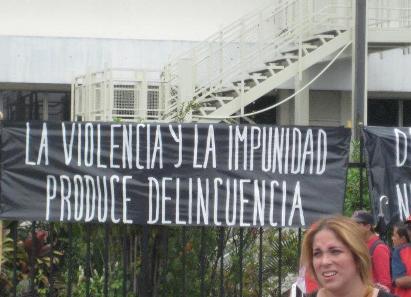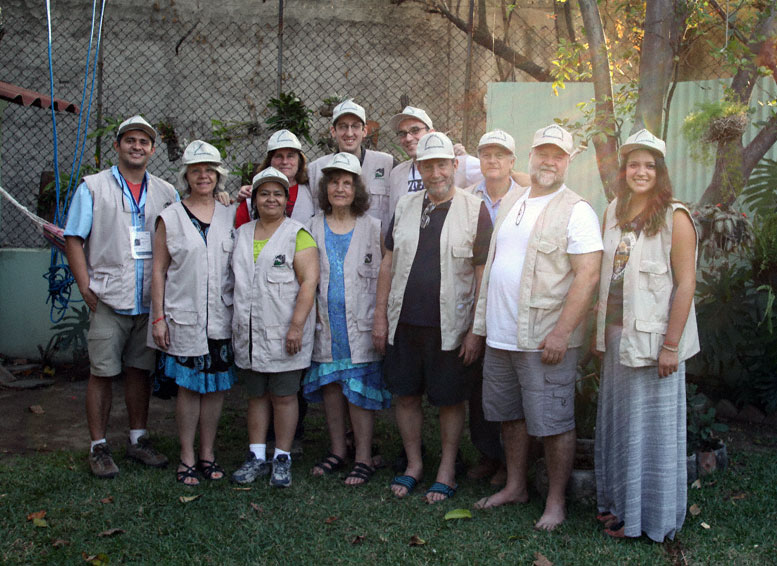Sister Cities
The Nation Reports: Which Side is the U.S. on in Honduras?
Dana Frank
May 22, 2012,
June 11, 2012 edition of The Nation
In some ways, it was just one more bloody episode in a blood-soaked country. In the early hours of the morning on May 11, a group of indigenous people traveling by canoe on a river in the northeast Mosquitia region of Honduras came under helicopter fire. When the shooting was over, at least four persons lay dead, including, by some accounts, two pregnant women. In Honduras, such grisly violence is no longer out of the ordinary. But what this incident threw into stark relief was the powerful role the United States is playing in a Honduran war.
US officials maintain that the Drug Enforcement Administration commandos on board the helicopters did not fire their weapons that morning; Honduran policemen pulled the triggers. But no one disputes that US forces were heavily involved in the raid, and that the helicopters were owned by the US State Department.
The United States has, in fact, been quietly escalating its military presence in Honduras, pouring police and military funding into the regime of President Porfirio Lobo in the name of fighting drugs. The DEA is using counterinsurgency methods developed in Iraq against drug traffickers in Honduras, deploying squads of commandos with US military Special Forces backgrounds to work closely with the Honduran police and military. The US ambassador to Honduras, Lisa Kubiske, recently said, “We have an opportunity now, because the military is no longer at war in Iraq. Using the military funding that won’t be spent, we should be able to have resources to be able to work here.”
Missing from the official story—never mentioned by US officials, and left out of mainstream news coverage—is that the US government’s ally in this campaign, the Lobo regime, is the illegitimate progeny of the military coup that deposed democratically elected President Manuel Zelaya on June 28, 2009. President Barack Obama and Secretary of State Hillary Clinton at first criticized the coup government, led initially by Roberto Micheletti, but then legitimated it. After almost all the opposition candidates (as well as international observers) boycotted the post-coup election that brought Lobo to power, heads of state throughout the region refused to recognize his presidency; but the United States hailed him for “restoring democracy” and promoting “national reconciliation.” The State Department and Clinton continue to repeat both fictions, as did President Obama when he welcomed Lobo to the White House in October.
 Meanwhile, US officials blame drug trafficking for almost all the country’s problems. “It may be gratifying to attribute Honduras’s problems to generals with sunglasses or to rigged elections,” former US ambassador to Honduras James Creagan insisted in a February 5 letter to the New York Times. “But it is not true. This is not the 1970s with Central American coups, contras and revolutionaries.” Rather, he asserted, the violence in Honduras “is caused by drugs, gangs and corruption…all driven by the market for coca leaf products.”
Meanwhile, US officials blame drug trafficking for almost all the country’s problems. “It may be gratifying to attribute Honduras’s problems to generals with sunglasses or to rigged elections,” former US ambassador to Honduras James Creagan insisted in a February 5 letter to the New York Times. “But it is not true. This is not the 1970s with Central American coups, contras and revolutionaries.” Rather, he asserted, the violence in Honduras “is caused by drugs, gangs and corruption…all driven by the market for coca leaf products.”
Only in the post-coup context, however, can we understand the very real crisis of drug trafficking in Honduras. A vicious drug culture already existed before the coup, along with gangs and corrupt officials. But the thoroughgoing criminality of the coup regime opened the door for it to flourish on an unprecedented scale. Drug trafficking is now embedded in the state itself—from the cop in the neighborhood all the way up to the very top of the government, according to high-level sources. Prominent critics and even government officials, including Marlon Pascua, the defense minister, talk of “narco-judges” who block prosecutions and “narco-congressmen” who run cartels. Alfredo Landaverde, a former congressman and police commissioner in charge of drug investigations, declared that one out of every ten members of Congress is a drug trafficker and that he had evidence proving “major national and political figures” were involved in drug trafficking. He was assassinated on December 7.
Far more than criminal gangs in the streets and drug traffickers acting independently, it is the Honduran state itself that has made Honduras, according to the Associated Press, “among the most dangerous places on earth.”
The administration argues that it is helping Honduras clean up its police by providing additional funding for “training.” But as former President Zelaya underscored in a conversation with me on May Day, “The police are the drug traffickers. If you fund the police, you’re funding the drug traffickers.”


